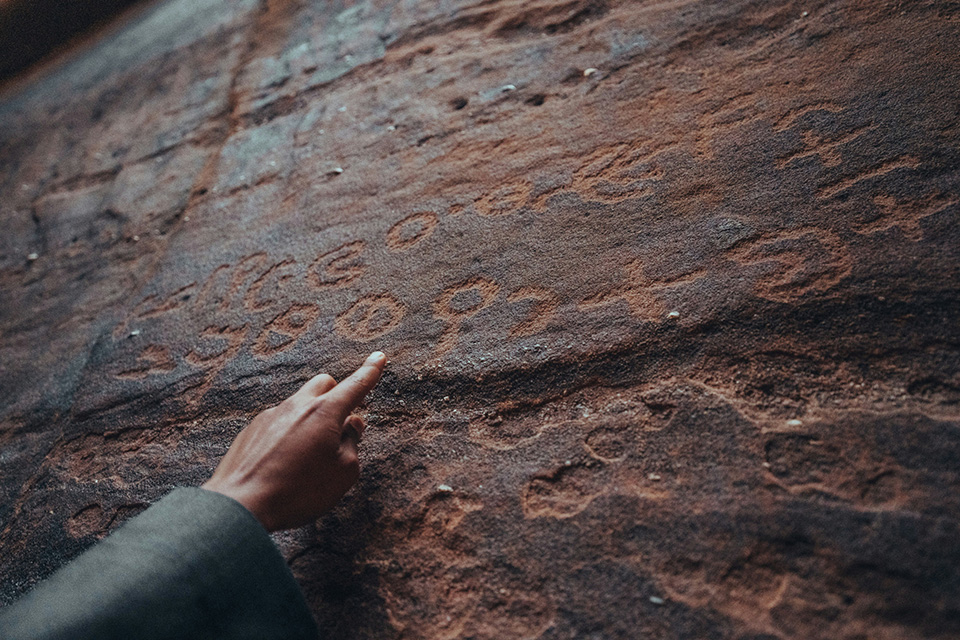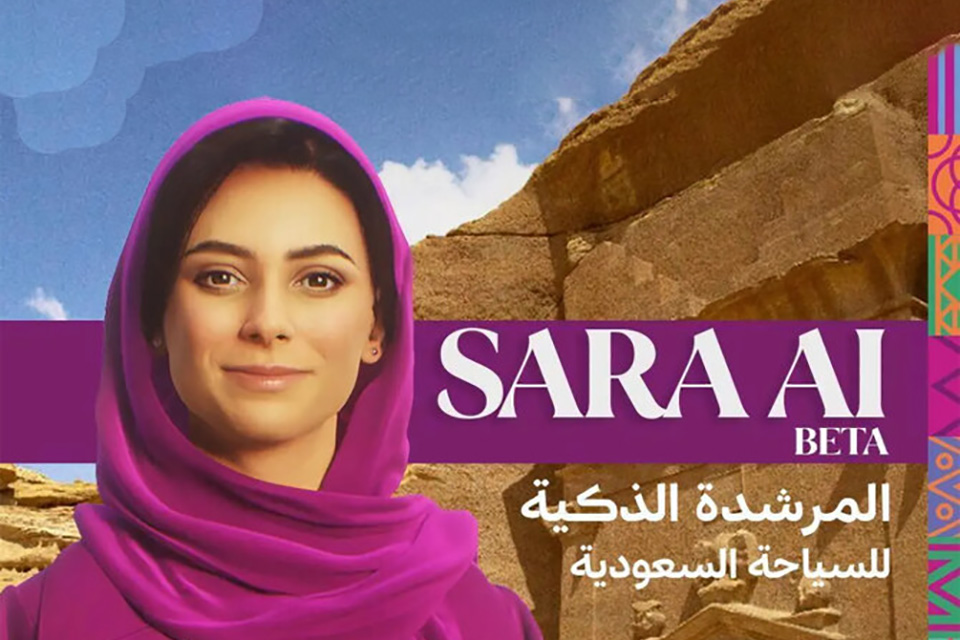- Umrah Visa
Preparing for Hajj: What You Need to Know Before Going to Mecca
Take note of these reminders and guidelines before performing Hajj.
Introduction
Every year, millions of Muslims from all over the world travel to Islam’s holiest site, Mecca in Saudi Arabia, to perform Hajj. In 2023 alone, a total of over 1,845,045 million pilgrims were reported to have undertaken Hajj, of which 1,660,915 were foreign pilgrims. Muslims who are physically capable must go on the Hajj pilgrimage at least once in their lifetime, provided this will not make it challenging for their family during their absence. The pilgrimage is known to be demanding not just physically, but financially, as well. When preparing for Hajj, what do Muslims need to remember?
In this article, we share tips on preparing for Hajj financially, physically, and spiritually for Hajj. What are ways you can save up for the trip? What do you need to be aware of? What should you bring and pack in your bags? What are things you can do to become spiritually ready for the pilgrimage? Read on to learn more.
Financially preparing for Hajj
Preparing for Hajj involves making sure you have enough to cover your expenses during the pilgrimage. Spending for Hajj is no walk in the park. If you are based outside Saudi Arabia, you must allocate funds to secure your Hajj visa and book your accommodation, transport, and flights.
To obtain these, Saudi Arabia’s Ministry of Hajj & Umrah has authorized travel service providers such as travel agencies to make Hajj packages available to pilgrims. This makes it easier for Saudi authorities to facilitate the issuance of Hajj visas, while it also makes the process simpler, easier, and more convenient for pilgrims to plan their Hajj trip.
Now, the costs will vary depending on your country of origin, as well as the types of accommodation and transport you select as part of your Hajj package. The cost of the Hajj travel package—which includes the visa fee—can range anywhere between SAR 13,780 ($3,941) and SAR 45,277 ($12,072).
Depending on your financial capability, it can take several months to years to accumulate sufficient funds for Hajj. The key to saving enough money for the pilgrimage is to do your research and to save ahead of time.
Nusuk Hajj, Saudi Arabia’s one-stop-shop platform for Hajj and Umrah, lists recognized service providers from which you can avail of your Hajj package. You can review these to know how much you’ll need to save.
Before you select a Hajj package, here are things to consider:
- Traveling solo or with a group
You can save money by sharing costs with a group, and you can benefit from the services of a Hajj guide as you go about the different Hajj rituals. However, if you are with family, you can also end up spending more if you need to cover their meals and transport. - Desired level of comfort
As mentioned, there are different accommodations that you can avail of among the offered Hajj packages. You have the option to stay in a luxury hotel, stay in a single room, or share a room with other pilgrims. You also need to spend on your transportation between cities (via the Haraman high-speed railway, plane, shuttle bus, or private car). - Meals
Meals are a vital part of the Hajj journey as you will need to stay energized throughout the different rituals. If you are staying in a hotel, you will enjoy access to filling meals. You will also need to stay hydrated in the hot weather and purchase snacks for the day. - The sacrifice
There is a high chance you may need to offer one sacrifice while you are in Mecca. This can be already included in your Hajj package, otherwise, if not, you can purchase one ahead of time in the city. The cost will depend on whether you will be sacrificing a cow or sheep, for example, and bigger animal sacrifices can be split with other pilgrims.
Tips for saving for Hajj
Now that you’ve done your research and you have a better idea of how much you will potentially need for your Hajj pilgrimage, you can target this amount as you start saving up for it. Here is some advice that may help:
- Establish a budget based on your target savings
It can be challenging to decrease your spending and stick to a tighter budget, but with a disciplined approach, you can set up a separate Hajj fund without touching your emergency fund or personal savings. You can open a separate savings account for your Hajj money and schedule regular transfers from your main bank account. - Pool funds with family and friends
Great things can be done in numbers, and if you will be traveling with family and/or friends, you may want to invite them to pool your funds together for Hajj. Establish a target date on which you can equally distribute the money among those taking part. - Take on the sidelines for extra income
Side gigs are a definite game changer to help you accumulate money faster for Hajj. You can deposit the income from the sideline straight to the dedicated Hajj savings account. - Pick the more affordable Hajj packages
Having reviewed the Hajj packages offered by authorized service providers, take your pick from those within your budget. As mentioned, you are free to design your own Hajj trip, but this will take more effort and advanced booking.
While going on Hajj can be financially challenging, it is thought to be rewarded with the purification of the heart and soul. Muslims believe performing Hajj is the fundamental duty of those physically and financially capable.
Performing it at least once in their lifetime fulfills one of the Five Pillars of Islam, which refer to the five basic acts of worship obligatory for all Muslims. For them, completing Hajj enables them to purify themselves of sin and become closer to God.
The Prophet spoke about the significance of Umrah and Hajj, and that Muslims should perform both pilgrimages throughout their lives if they can. Muslims also believe that by doing both Umrah and Hajj, they may seek forgiveness for their sins and ask for help to overcome poverty or hardship. If done sincerely and accepted by Allah, a completed Hajj can lead the pilgrim to paradise
Physically preparing for Hajj
The rituals of Hajj may be physically taxing even for pilgrims who are active and fit. Take, for instance, the Tawaf, wherein you have to walk seven times counterclockwise around the Kaaba, or the cubic structure veiled with silk and cotton inside the Great Mosque of Mecca. There is also the Sa’ay, wherein you have to run or walk seven times between the hills of Safa and Marwah.
You don’t have to work out at the gym to achieve the physical fitness required for Hajj. Simple physical activity such as walking for 30 minutes each day for three months can do wonders to build your stamina for the rites of Hajj. The key is to do light exercises consistently for months before the pilgrimage to build your strength and endurance.
Changes to your diet will also help you get healthier for Hajj. Make sure to incorporate more fruits and vegetables in your meals months before the pilgrimage.
Spiritually preparing for Hajj
Perhaps the most important aspect to look when preparing for Hajj is your spiritual preparation. Establishing a state of spiritual readiness will help your journey become enriching. You must also be ready to be patient and forgiving as disputes during Hajj are forbidden.
If you are new to Hajj and if you are traveling with a group, you may want to avail of the services of a Hajj guide as you go through the rituals. You may also obtain a Hajj book if you’d like to navigate the rites on your own.
It is also helpful to keep practicing your Sunna or your voluntary prayers, doing your Athkar or words of remembrance, and reciting the Qurʾān more often. There are also Hajj seminars for first-timers.
Make sure to also prepare your supplications and invocations for your dua. Look into yourself and ask yourself what you would wish to seek from Allah.
Things to pack in your bags
Now that we’ve tackled the ways of preparing for Hajj financially, physically, and spiritually, let’s also discuss the things that are essential for the pilgrimage. If it helps, print this article out or take a screenshot of this so you have a checklist of items for your trip.
- Ihram
As you enter the sacred state of Iḥrām in which you will remain in during the special rituals of Hajj, make sure you pack the necessary clothing. If you are a man, you must not wear any item of clothing with seams, buttons, or hems.For the men, prepare the upper garment, the rida, as well as the lower garment, the izar. Have one set with you in your hand luggage during your flight to Saudi Arabia as you will need to change into it once you pass through the miqat (Dhul-Hulayfah, Dhat Irq, Qarn Al-Manazil, Yalamlam, or Juhfah) and assume Ihram. Also, have a spare set with you at all times.
Your hotel may have laundry facilities available should you need to wash these.
For the women, you may continue to wear your regular clothing as long as your hair and body are covered (with just the face, hands, and feet exposed).For your footwear, wear sandals or flip-flops before you go to the airport or have them with you in your hand luggage so you can change into them when you cross Miqat.
- Medication
If you are on medication, make sure to have it with you at all times so as not to cause inconvenience or health issues while you are performing Hajj. While there are many pharmacies available in Saudi Arabia, you may forget to bring your prescription or won’t have the time to purchase your medication.Also bring important travel medication such as painkillers, anti-diarrhea medicine, antacids, antihistamines, or motion sickness medicine. - Toiletries
When you exit the state of Ihram, you may resume using your regular toiletries such as deodorant, perfumed soap, and shampoo. Make sure to bring with you all your essentials for grooming and hygiene. - Bag for your valuables
A good waist bag, shoulder bag, or fanny pack will help you have your valuables close to you at all times even while wearing ihram. There are actually special bags designed for Hajj that help protect your bags from pickpockets. You may also want to look into these. - Cash
Always have enough cash with you so you can purchase snacks, water, or other items during Hajj. You may also avail of a card that provides you with a good exchange rate in Saudi Arabia. - Travel documents
Don’t forget to pack your passport and visa and keep these close to you at all times. Make sure to also keep valid vaccination certificates of the following:a. Required vaccinations
Neisseria Meningitidis: You must produce a valid vaccination certificate proving you have received four doses of the meningitis vaccine. The vaccine should have been administered at least 10 days before your arrival at the Hajj sites.Polio: This applies only to countries where polio cases are still on the rise. Produce a valid vaccination certificate proving you have received at least one dose of either bivalent oral polio vaccine (Bopv) or inactivated polio vaccine (IPV). The vaccine should have been administered between four weeks and 12 months before you entered Saudi Arabia.
Yellow Fever: This applies to all pilgrims above nine months old, where yellow fever continues to be prevalent. You must present a valid vaccination certificate indicating that you’ve been vaccinated against polio before arriving in Saudi Arabia. The certificate only becomes valid ten days after vaccination and it remains valid for life.
b. Recommended vaccinations
SARS-COV-2 (COVID-19): This is ideal for pilgrims aged 12 years and above. They must have received all doses of Saudi Arabia’s approved COVID-19 vaccines. These include Pfizer-BioNTech, Moderna, Oxford/AstraZeneca, Janssen, Covovax, Nuvaxovid, Sinopharm, Sinovac, Covexin, and Sputnik V.Seasonal influenza: It is advisable to obtain this vaccination at least 10 days before you visit Hajj sites, especially for pregnant women, children below five years old, senior citizens, and people with weak immune systems or chronic conditions.
- Unlocked phone
Have an unlocked phone to use a local SIM while in Saudi Arabia. If your phone supports it, you may also buy an electronic SIM or e-SIM, which can be activated digitally and provide access to a local network.Otherwise, avail yourself of a good data plan and get people to call you so you can save money.
Frequently Asked Questions
Although we’ve covered essential information on preparing for Hajj, you may still have unanswered questions about it. The following are helpful answers to some frequently asked questions about Hajj.
What is Hajj?
Hajj refers to the Islamic pilgrimage to the city of Mecca (Makkah) in Saudi Arabia. Each Muslim adult is expected to perform Hajj at least once in his or her lifetime. It starts on the 7th day of Dhū al-Ḥijjah (the last month of the Islamic year) and ends on the 12th day.
Completing Hajj is considered one of the five pillars of Islam. Undergoing the Hajj pilgrimage is believed to not just purify pilgrims of their sins, but also lead them to Paradise.
Over 1.8 million pilgrims performed Hajj in 2023.
When is Hajj in 2024?
Hajj in 2024 is forecasted to take place between June 14 and 19. Muslim pilgrims are expected to start arriving on May 9, the first day of Dhul Qaidah, the 11th Islamic month.
Who can go to Hajj?
The process of determining Hajj pilgrims each year involves several steps and factors:
- Quota System: Each country is allocated a specific quota of pilgrims by the Saudi Arabian government, which oversees the Hajj pilgrimage. These quotas are based on the Muslim population of the country.
- Government Selection: Governments of Muslim-majority countries usually oversee the selection process. They may employ various methods, such as lottery systems, to fairly allocate Hajj slots among eligible citizens.
- Registration: Eligible individuals who wish to perform Hajj must register with their respective government authorities or authorized Hajj agencies. Registration commonly involves providing personal information, documentation, and payment of fees.
- Criteria: Governments may prioritize certain categories of individuals, such as first-time pilgrims, elderly people, or those with health conditions. They may also consider factors like previous Hajj attendance, socio-economic status, and community contributions.
- Approval from Saudi Authorities: After the selection process at the national level, the final approval for Hajj participation comes from the Saudi Arabian government. They issue visas and other necessary permissions for pilgrims to enter the Kingdom and perform the pilgrimage.
Overall, the process aims to ensure fairness, safety, and proper management of the large number of pilgrims who converge on Mecca each year for the Hajj.
Does registering on Nusuk mean that I have been accepted for Hajj?
No. Registering on Nusuk does not equate to being accepted into Hajj. Check if you are a citizen of the serviced countries on Nusuk for 2024. If you are eligible, you can register through the platform.
Once registered, you may apply for a Hajj visa through authorized service providers who can assist you with the visa application process. It will be up to the Ministry of Umrah & Hajj to approve your Hajj visa.
Conclusion
Preparing for the Hajj pilgrimage is perhaps the most important event that a Muslim can take part in during his lifetime. It is important to put in sufficient preparation financially, physically, and spiritually, as the rituals can be challenging.
The Saudi Ministry of Hajj & Umrah has authorized service providers such as travel agencies to offer packages that include Hajj visas, accommodation, and transport. Choose one that suits your budget and preferences.
For more information on Hajj, visit Nusuk Hajj.
Image from Wikimedia Commons






